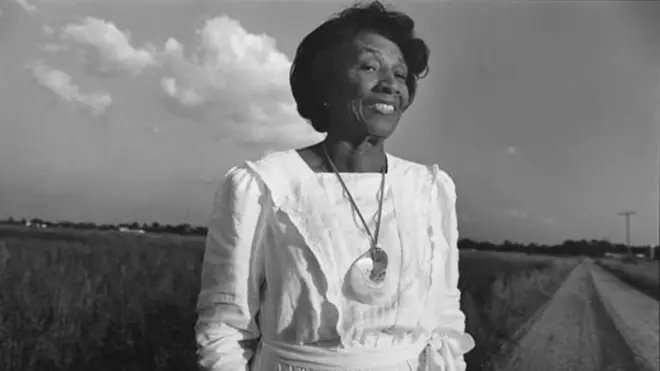On Air Now
Calm Classics with Ritula Shah 10pm - 1am
21 October 2020, 16:18

Exploring the life and music of a renowned African American educator and composer, whose oratorio based on the life of Martin Luther King Jr was nominated for a Pulitzer Prize.
Meet Undine Smith Moore, a 20th-century composer and prolific music educator.
In 1904 in the state of Virginia, Undine was born to African American parents James William Smith and Hardie Turnbull Smith, whose own parents had been slaves.
The Smiths’ lives were filled with music – whether at home or singing in church. According to Helen Walker-Hill’s From Spirituals to Symphonies: African-American Women Composers and Their Music, Undine once said of her childhood, “above all else, music reigned”.
Undine trained as a classical pianist, but her heart lay in vocal music. As a composer and arranger, she would go on to write numerous choral works, many of them inspired by African spirituals and folk music.
Moore got her music education at Fisk University and Columbia University. In 1924, at the age of 20, she became the first graduate of Fisk to receive a scholarship to New York’s prestigious Juilliard school.
Despite her early successes, Moore tragically never thought herself capable of becoming a composer. She once said: “One of the most evil effects of racism in my time was the limits it placed upon the aspirations of blacks, so that though I have been ‘making up’ and creating music all my life, in my childhood or even in college I would not have thought of calling myself a composer or aspiring to be one.”
Read more: 9 Black composers who changed the course of classical music history >

Undine Smith Moore - Afro-American Suite (1969) - I. Andante
After obtaining her graduate degree, Moore joined the music faculty at Virginia State College – now Virginia State University – where she taught piano, organ and music theory for over 40 years.
Moore championed the teaching of African American music on school and university syllabuses. She once said: “Black music is a house of many mansions. Blacks have many musics and some of them relate in an extremely universal way to the human condition.”
Moore, who became known to some as the ‘Dean of Black Women Composers’, believed the term ‘Black music’ should only refer to music written by a Black person.
She co-founded the Black Music Center at Virginia State College, which aimed to educate members about the “contributions of Black people to the music of the United States and the world”. She described it as the proudest moment in her career.
Moore’s musical output consists of over 100 compositions, only 26 of which were published in her lifetime, including her Afro-American Suite (1969) which you can hear in the video above or on Spotify here.
Scenes from the Life of a Martyr, her 16-part choral cantata based on the life of Dr Martin Luther King, Jr, premiered at Carnegie Hall in 1981 and was nominated for a Pulitzer Prize.
Read more: Meet George Walker, the first Black composer to win the Pulitzer Prize for Music >

MOORE Scenes from the Life of a Martyr (Excerpt)
Moore was celebrated in her lifetime as an “outstanding educator”, an accolade given to her by the National Association of Negro Musicians, an organisation dedicated to the preservation of music by African American composers.
She received honorary doctorates from Indiana University and Virginia State College and a humanitarian award from Fisk University, and was named music laureate of the state of Virginia in 1975.
Undine Smith Moore died in 1989.
Three years ago, she was named one of the Virginia Women in History for 2017.